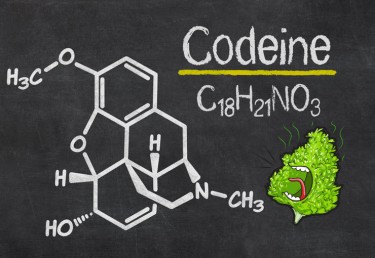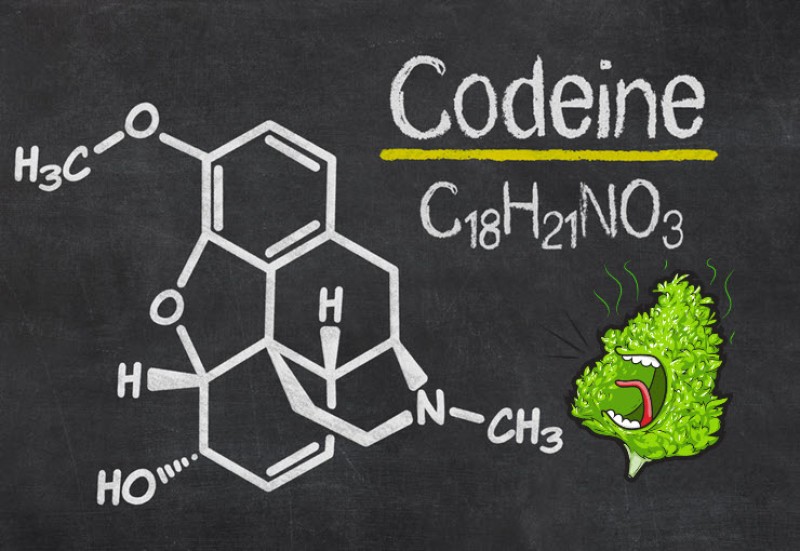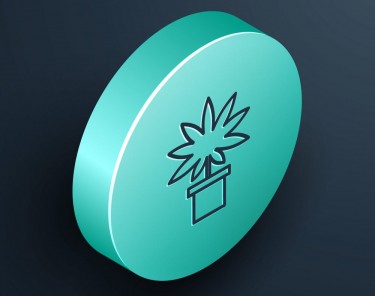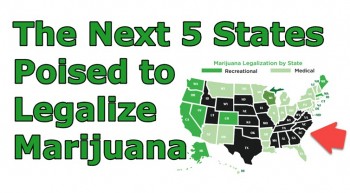
Opioids are potent, addictive, and dangerous pharmaceutical medications. This class of medicines are made with chemicals that are designed to relax the body and thus, relieve pain.
Prescription opioids are given to patients of various conditions for treating moderate to severe pain. However, due to its extremely addictive qualities, many patients have become addicted to opioids and this has notoriously led to many fatalities around the country. The opioid crisis has taken thousands of lives over the past few years, yet doctors and pharmacies are still there, doling it out.
Some common examples of opioids include codeine, morphine, oxycodone, methadone, and hydrocodone. Thankfully, the rise of cannabis legalization has helped to curb the opioid crisis.
In one of the latest studies, data shows that recreational cannabis laws have been linked to a reduced demand for codeine. The study, which was published in the journal, Health Economics, was conducted by researchers associated with New York’s Cornell University together with the George Mason University in Virginia. They sought to understand how recreational cannabis laws affected, if any, the distribution of opioids to pharmacies and hospitals.
The researchers discovered that there was a 26% decrease in demand for distribution of codeine to pharmacies in 10 states and Washington DC. They also found that pharmacy distribution of codeine dropped even further to 37% after these laws have been around for four years. The study’s authors state that this is one of the first studies to explain the effects of recreational cannabis laws to the shipment and distribution of opioids to distributors including hospitals and pharmacies. They analyzed data from the Drug Enforcement Administration’s Automation of Reports and Consolidation Orders System, which monitors the flow of controlled substances.
“Among prescription opioids, codeine misuse is especially high,” explains study author, Coleman Drake, who is also an assistant professor of health policy and management in the University of Pittsburgh School of Public Health. He adds that the study’s findings suggest that people may be using recreational cannabis as an alternative to codeine.
“A reduction in the misuse of opioids can save lives,” adds Shyam Raman, another study author and a doctoral candidate for Cornell’s Jeb E. Brooks School of Public Policy. “Our research indicates that recreational cannabis laws substantially reduce distribution of codeine to pharmacies, an overlooked potential benefit to legalizing recreational cannabis use.”
However, even if they saw a reduction in demand for codeine, they didn’t see any significant decreases in oxycodone, morphine, and hydrocodone distribution.
“This finding is particularly meaningful,” said Drake. “Where previous studies have focused on more potent opioids, codeine is a weaker drug with a higher potential for addiction. It indicates people may be obtaining codeine from pharmacies for misuse, and that recreational cannabis laws reduce this illicit demand,” he adds.
Whether for pain or as a recreational drug, there are many benefits for substituting cannabis for codeine and other opioids.
Misuse and abuse of opioids can lead to hypoxia, a medical condition that arises as a result of too little oxygen reaching the brain. As a result, individuals can suffer from slowed breathing which in turn leads to brain damage, or even a coma and eventual death.
Another recent review of longitudinal studies conducted by researchers out of Montreal, Canada found similar results, that cannabis legalization laws have been associated with a reduction in prescription opioid consumption. The review, which was published in Frontiers in Psychiatry, involved analyzing 32 longitudinal studies assessing the public health outcomes among states with recreational cannabis laws and compared it to states without such laws.
“Most research articles included in this topic were evaluated as having high-quality evidence,” said the researchers. “As such, the evidence is sufficient to establish a potentially beneficial association between recreational marijuana legalization and prescription opioid patterns,” they wrote.
Cannabis Over Opioids
These are just some of many studies which all share similar findings. It’s not surprising, given that cannabis has so many more benefits compared to opioids, which are dangerous and addictive.
For patients who are struggling with chronic pain, cannabis does a better job at treating it. A study conducted by researchers from the State University of New York at Albany and New York State Department of Health analyzed how medical cannabis impacted opioid consumption of 8,000 patients with chronic pain. These patients were being prescribed with opioids (long-term opioid therapy or LOT), and were studied for 8 months.
The researchers found that the morphine milligram intake (MME) of patients reduced after they were given cannabis. These statistics were found to decrease even more as time went on. “In this cohort study of patients receiving LOT, receiving MC (medical cannabis) for a longer duration was associated with reductions in opioid dosages,” wrote the researchers. “These findings contribute robust evidence for clinicians regarding the potential benefits of MC in reducing the opioid burden for patients receiving LOT and possibly reducing their risk for overdose,” wrote the researchers.
Meanwhile, another study from January reported that almost 1 in every 3 patients with chronic pain turn to marijuana for treatment. Additionally, many of them do so as an alternative to opioids. The study was conducted by researchers from the University of Michigan at Ann Arbor and the Johns Hopkins School of Public Health, who polled 1,724 adults with chronic pain living in states with medical cannabis laws.
Given the consistency of these findings, it’s clear that patients are becoming increasingly aware of the benefits of marijuana as well as the risks of opioids. Whether you need medication or a recreational drug, cannabis is always the safer alternative.






